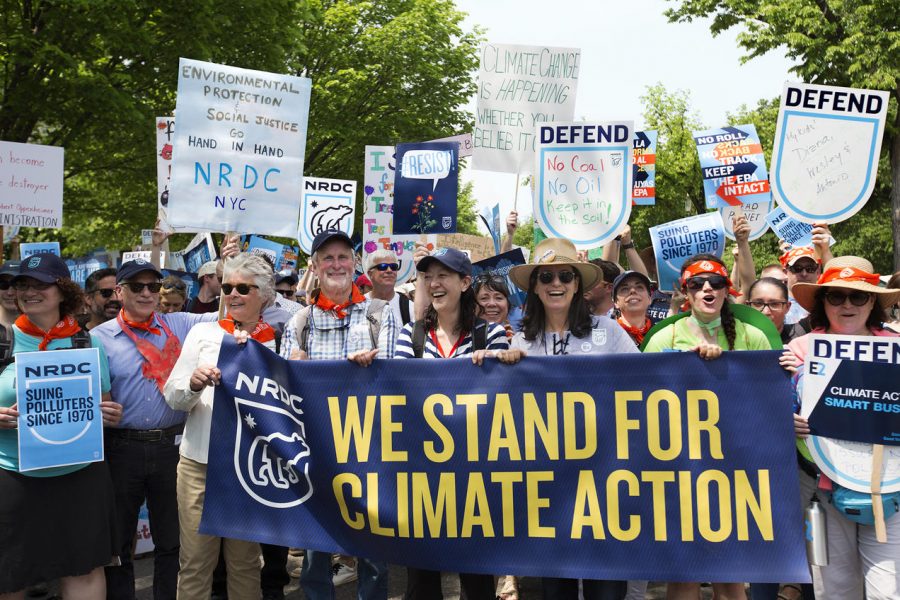Thousands gathered in San Francisco just days before the Global Action Climate Summit to urge global leaders to transition from fossil fuels to renewable energy, among other issues.
On September 8, justice advocates including citizens from all parts of the Bay Area joined together for a two-mile walk from the Embarcadero Plaza to the Civic Center. The global organization Rise for Climate, Jobs, and Justice organized the march, which was one of 800 such demonstrations that occurred in over 90 global locations.
“At some point, we have to change something,” Alton Lee, a biology teacher at Woodside, stated. “If we don’t, we’re going to need to change our lifestyles really quickly and in really severe ways.”
While the San Francisco Climate Change Summit is an annual occurrence, this year’s numbers were unprecedented, perhaps pointing to the increased conversation regarding climate change. Marches came in groups, with friends, colleagues, and families all uniting for the same cause: benefiting future generations.
“It was very nice to see the interest and the enthusiasm,” Ann Akey, Woodside’s AP Environmental Science teacher, commented. “I read later that there were 30,000 to 40,000 of us, and [I enjoyed seeing] the creative things and the signs and what people had prepared to get their point across.”
The protests, aimed at the slow movement of previous summits, forced acknowledgment of the increasing threat climate change poses on society. NASA’s website reports that sea levels are increasing 3.2 millimeters per year while the arctic ice decreases by 13.2 percent every decade.
The record breaking number of attendees to the march is a reminder that simple actions such as raising awareness, opting to walk over driving, using less heat, and even changing light bulbs can provide a positive shift in climate change. However, that alone cannot make a profound enough statement, and some effects are already irreversible.
“It’s going to have an effect on your futures,” Akey stated. “It’s having an impact now. The impact is only growing, and we’re doing very little to address it.”









